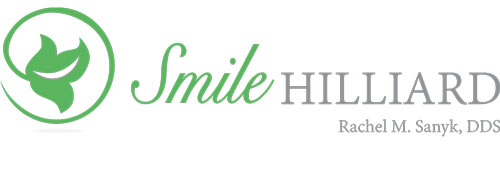Did you know that your dentist is the only medical professional who regularly screens for oral cancer? It’s true. That screening, by the way, is super-important because like all cancers, the sooner you can catch oral cancer, the better your treatment outcomes. Read on to learn more about how oral cancer is diagnosed, what causes it, and how it’s treated.
How Is Oral Cancer Diagnosed?
During your appointment, we’ll carefully examine your mouth to look for signs of oral cancer. The most common signs of early-stage cancers are sores that do not heal, masses or swellings, changes to your bite, difficulty swallowing, and radiographic abnormalities. If anything suspicious is found, we’ll refer you to the appropriate specialist; this could be an oral surgeon, ENT, or your primary care physician. This provider will likely want to perform a biopsy, CT scan, or other diagnostic tests.
CT (computerized tomography) scans are sent to oral maxillofacial radiologists to pinpoint the size, shape, and location of the abnormality. A definitive diagnosis is usually determined after a biopsy.
An incisional biopsy is when a surgeon removes samples of the cells, while an excisional biopsy removes the entire area in question. In either case, a pathologist thoroughly examines the tissue using a microscope, looking for cancer or precancerous changes that indicate cancer risk.
What Causes Oral Cancer?
Oral cancer forms when cells develop mutations in their DNA. When healthy cells would normally die, these mutations “tell” cells to continue growing and dividing, eventually forming a tumor. That tumor can spread inside the mouth, or to other areas of the head and neck.
Risk factors for oral cancer include:
- Any type of tobacco use, like cigarettes, cigars, snuff, chewing tobacco, and pipes
- Heavy alcohol consumption
- Excessive sun exposure to the lips (and nose)
- The human papillomavirus (HPV)
- A weakened immune system
How Is Oral Cancer Treated?
Treatment of oral cancer usually involves an array of medical practitioners, including surgeons, radiation oncologists, chemotherapy oncologists, dentists, and nutritionists. Prior to treatment, teeth with large cavities or severe periodontal problems may be extracted, so as not to cause post-operative or healing problems later.
As for whether surgery will be required, that depends on the stage and type of cancer. Each oral cancer case is individual, although surgery, radiation, chemotherapy, or some combination of these treatments, may be required.
Who Gets Oral Cancer?
Men are twice as likely as women to develop oral cancer. Oral cancer is also more likely to strike those over the age of 50.
People who use chewing tobacco or snuff have the highest risk of developing oral cancer. In fact, they’re 50 times more likely to develop oral cancer than people who don’t use smokeless tobacco.
Also at high risk of oral cancer are smokers and heavy drinkers. Each of these groups are 6x more likely to develop the disease.
If you use tobacco products, we strongly encourage you to quit. Within 5 years of quitting smoking, your risk of developing oral cancer is cut in half. Likewise, quitting chewing tobacco or snuff will also significantly reduce your risk of oral cancer.
Need help quitting? We encourage you to check out this guide created by the American Cancer Society.
How Can I Schedule an Oral Cancer Screening at Smile Hilliard?
At Smile Hilliard, we screen for oral cancer at each and every dental appointment. If you’re due for a checkup—or have a persistent mouth sore (longer than two weeks) that you want us to examine—it’s easy to schedule your next dental appointment.
To do so, you can request an appointment online or call our office at 614.328.9489 to schedule an examination by one of our caring dentists. We are located at 6304 Scioto Darby Road in Hilliard and look forward to seeing you.





